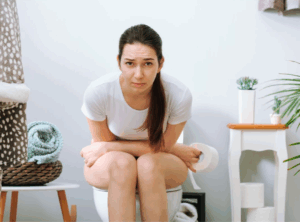When it comes to hormones, most women expect a little drama—monthly cycles, mood swings, and the occasional breakout. But for those living with Congenital Adrenal Hyperplasia (CAH), this drama can feel more like a never-ending soap opera. CAH is a genetic condition that disrupts normal hormone production in the adrenal glands, often creating a cascade of effects on physical health, reproductive function, and emotional wellbeing.
Understanding CAH is crucial—not only for those living with the condition, but also for family members, partners, and healthcare providers who want to offer informed support. So let’s break it down.

What is Congenital Adrenal Hyperplasia?
CAH refers to a group of inherited disorders that affect how the adrenal glands produce vital hormones like cortisol and aldosterone. Most cases are caused by a deficiency in the enzyme 21-hydroxylase. Without this enzyme, the body struggles to produce enough cortisol, triggering an overproduction of androgens (male sex hormones).
This hormonal imbalance can lead to a variety of symptoms, especially in women—including ambiguous genitalia at birth (in classic CAH), early puberty, excessive body hair, acne, irregular menstrual cycles, and fertility challenges.
The Two Faces of CAH: Classic vs. Nonclassic
-
Classic CAH is typically diagnosed at birth or during infancy, especially if symptoms like ambiguous genitalia or salt-wasting crises appear.
-
Nonclassic CAH, on the other hand, often flies under the radar until adolescence or adulthood. Many women only discover they have CAH after years of struggling with PCOS-like symptoms, unexplained acne, or irregular cycles.
For example, Maria, 27, spent years being misdiagnosed with PCOS. It wasn’t until her endocrinologist ordered a CAH gene panel and hormone tests that she received the correct diagnosis—finally explaining why her acne treatments hadn’t worked and why her periods had always been irregular.
CAH Diagnosis and Treatment
Getting the right diagnosis is a critical first step. CAH diagnosis and treatment typically involves:
-
Blood tests for 17-hydroxyprogesterone levels
-
ACTH stimulation tests
-
Genetic testing (especially useful for confirming nonclassic CAH)
Once diagnosed, treatment often includes glucocorticoids to replace cortisol and reduce androgen production. In salt-wasting forms, mineralocorticoids help maintain proper sodium balance.
But CAH management is an art, not just a science. Over-treatment can cause side effects like weight gain or mood changes. Under-treatment leaves hormone imbalances unchecked. That’s why regular check-ups with an experienced endocrinologist are key.
The Role of Exercise in CAH
Many women ask: “Can I exercise with CAH?” The answer is a resounding yes—with some caveats.
Congenital Adrenal Hyperplasia and exercise go hand in hand when approached thoughtfully. Exercise helps maintain a healthy weight, boost mood, and support cardiovascular health—all important for CAH management. However, it’s essential to monitor energy levels, stay hydrated, and avoid overexertion during hormone adjustment periods.
Sarah, a fitness enthusiast with nonclassic CAH, found that working with a trainer who understood her condition made all the difference. “I still lift weights and run 5Ks,” she says. “But I pay attention to my body and adjust on low-energy days.”
CAH and Fertility: A Complex Journey
How does CAH affect fertility? Elevated androgens can disrupt ovulation, making conception more difficult. Some women also face anatomical variations that may require surgical intervention.
But the good news? Many women with CAH do go on to have children—with the right treatment. Hormonal therapy can regulate menstrual cycles, while fertility treatments like IVF provide additional options when needed.
Pregnancy itself requires careful planning. Medication doses often need adjustment to ensure both maternal and fetal health. Collaboration between an endocrinologist, OB/GYN, and fertility specialist is crucial.
The Emotional Side: Identity and Confidence
CAH affects more than the body—it impacts how women see themselves. Those who grew up with visible symptoms or early surgeries may struggle with self-esteem, gender identity, or intimacy.
That’s why mental health support is as important as hormone therapy. Counseling, peer support groups, and online communities offer safe spaces for women to share their stories and build confidence.
Take Jenny, 32, who has classic CAH. “For years, I felt ashamed about my body,” she shares. “Joining an online CAH support group changed everything. I realized I wasn’t alone—and that my diagnosis didn’t define me.”
Living Fully With CAH
Living with CAH isn’t about “fixing” a condition—it’s about understanding your body, working with knowledgeable doctors, and embracing life fully.
Women with CAH pursue careers, relationships, fitness goals, and motherhood—often with greater resilience and self-awareness. With early diagnosis, individualized treatment, and supportive communities, CAH becomes a manageable part of life—not the whole story.
Final Thoughts
Congenital Adrenal Hyperplasia may introduce unexpected plot twists in a woman’s hormonal journey—but it doesn’t control the narrative. With informed care, empathy, and proactive management, women with CAH can thrive—in their own bodies, on their own terms.
If you or someone you love is navigating CAH, remember: expert medical care, emotional support, and self-compassion are the keys to living well. This is one drama where the heroine can absolutely write her own ending.
